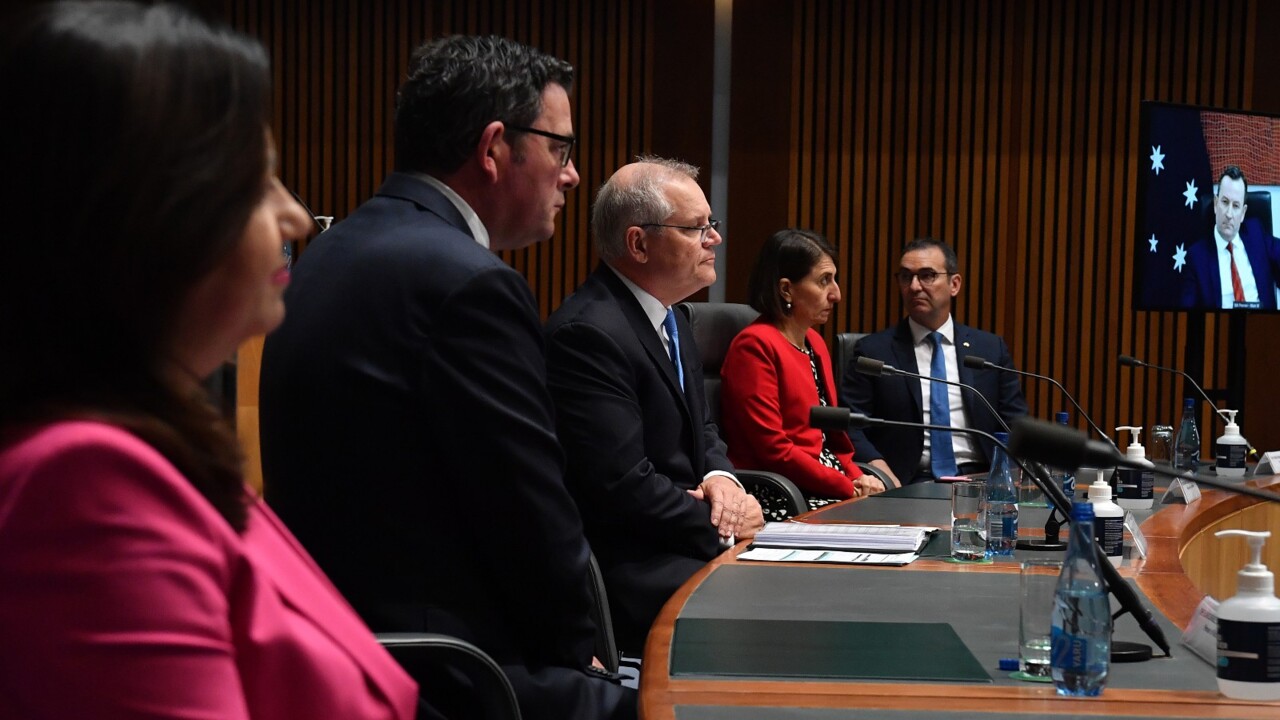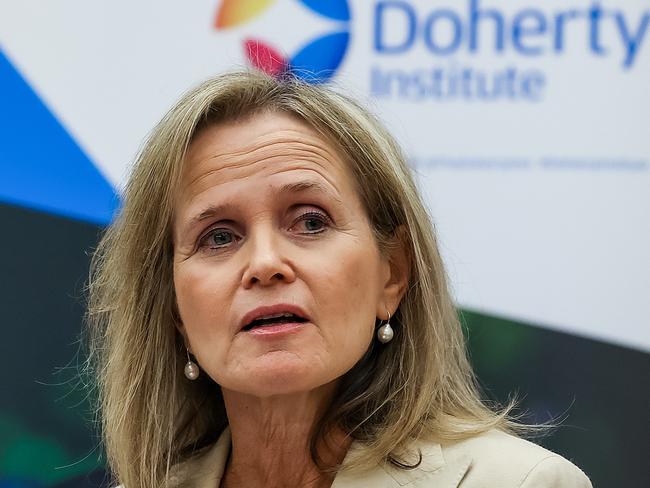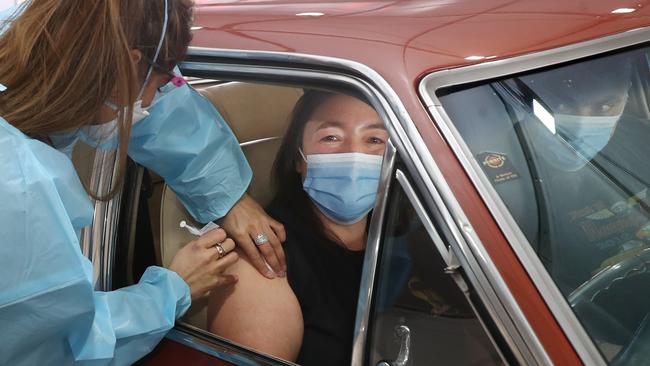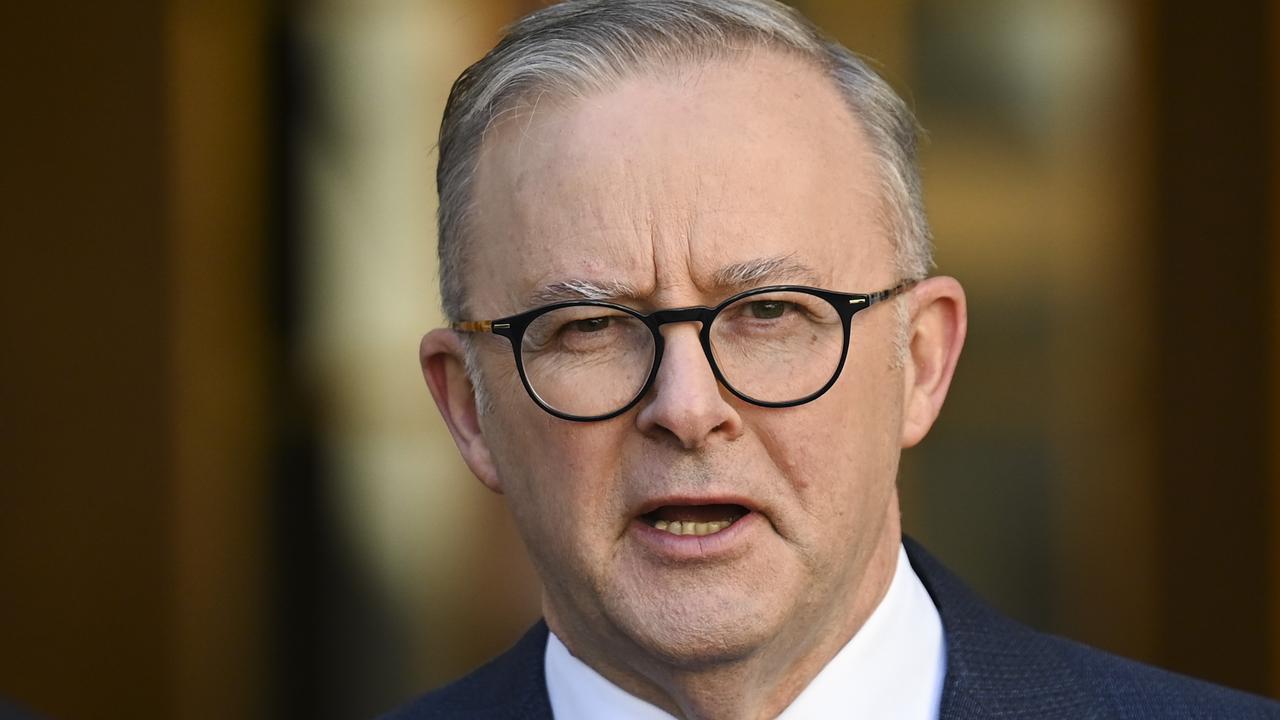Belated campaign of hope arrives for our Covid future
The belated campaign of hope has finally begun, with talk of what we will be able to do in a Covid future instead of what we won’t.

Patrick Carlyon
Don't miss out on the headlines from Patrick Carlyon. Followed categories will be added to My News.
If science is our friend, as we keep being told, it has offered a lot of tough love.
As applied through public health restrictions, science has sentenced us to living in our caves for the foreseeable future. The problem, as we all know, is that our caves are damp and depressing.
Leaders, state and federal, have fixated on the immediate. The shortsighted approach has neglected the deeper emptiness of confinement, and brings to mind the line from the 1997 movie As Good As It Gets: “I’m drowning here and you’re describing the water”.
Few bold targets have challenged the everyday currency of woe.
Finally, however, science has served up something more palatable.

The Doherty Institute has conjured societal scenarios that sound easier than today. The institute has predicted what we might be able to do as opposed to what we cannot.
Lockdowns could end once 70 per cent vaccination targets are achieved. The higher the number of vaccinated, the kinder the consequences.
Premier Dan Andrews has chimed in. At 80 per cent vaccinations, he says, generalised lockdowns would be “highly, highly unlikely”.
These are elements in a bigger (and belated) campaign of hope. Prime Minister Scott Morrison has sought to shift expectations. Lockdowns, he has foreshadowed, will become a nasty relic of the past.
The shift in rhetoric finally jettisons the dated preoccupation with eliminating the virus. It also emphasises how badly we trail the western world.

Australia is six months behind other countries, such as Britain, even further behind Israel.
These nations have done what we are finally talking about doing. They have signposted the potholes in our path ahead.
Case numbers will rise overnight when we open. It won’t be like flu, as the longer-term predictions suggest Covid will recede to be.
But the key measures will change, to hospitalisations and deaths. Jittery premiers will impose controls here and there. But holdout states, such as WA and Qld, will be cast as pariahs if they pursue their backward approaches.
The judgment of those who have chosen not to vaccinate will probably soften to sympathy.
Not only will they be left behind. For them, the science will be no friend. It tells us that the unvaccinated will be the most likely to die.
And that might be the toughest lesson of all.





